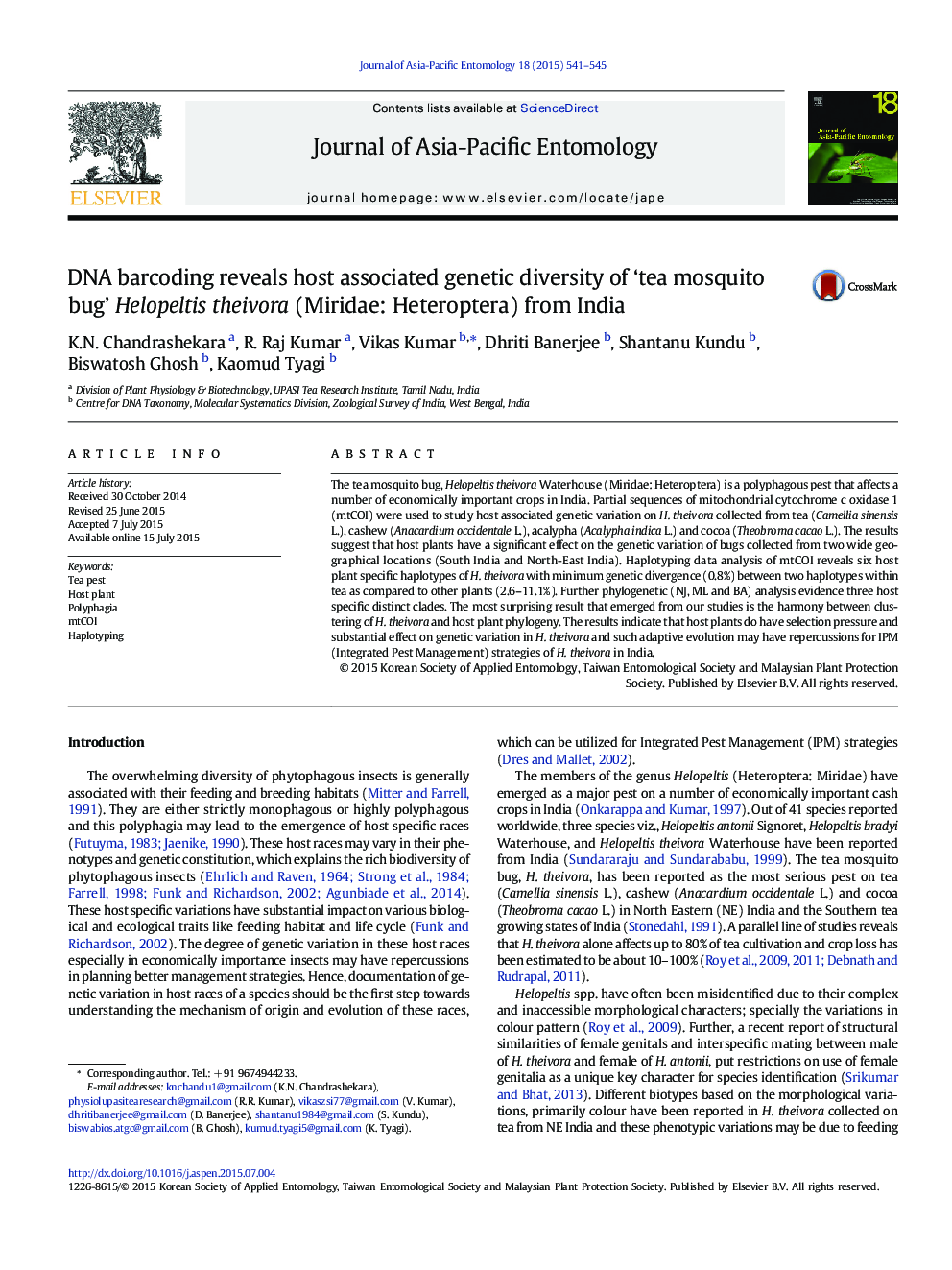| Article ID | Journal | Published Year | Pages | File Type |
|---|---|---|---|---|
| 4524654 | Journal of Asia-Pacific Entomology | 2015 | 5 Pages |
•We analysed host driven genetic variation in tea mosquito bug Helopeltis theivora.•Haplotyping and phylogenetic analyses revealed host specific haplotypes & clades.•High genetic divergence (2.6–11.1%) is observed between host associated haplotypes.•Change in polarity of amino acids is detected between different haplotypes.•These changes suggested host-based selection pressure and adaptive evolution.
The tea mosquito bug, Helopeltis theivora Waterhouse (Miridae: Heteroptera) is a polyphagous pest that affects a number of economically important crops in India. Partial sequences of mitochondrial cytochrome c oxidase 1 (mtCOI) were used to study host associated genetic variation on H. theivora collected from tea (Camellia sinensis L.), cashew (Anacardium occidentale L.), acalypha (Acalypha indica L.) and cocoa (Theobroma cacao L.). The results suggest that host plants have a significant effect on the genetic variation of bugs collected from two wide geographical locations (South India and North-East India). Haplotyping data analysis of mtCOI reveals six host plant specific haplotypes of H. theivora with minimum genetic divergence (0.8%) between two haplotypes within tea as compared to other plants (2.6–11.1%). Further phylogenetic (NJ, ML and BA) analysis evidence three host specific distinct clades. The most surprising result that emerged from our studies is the harmony between clustering of H. theivora and host plant phylogeny. The results indicate that host plants do have selection pressure and substantial effect on genetic variation in H. theivora and such adaptive evolution may have repercussions for IPM (Integrated Pest Management) strategies of H. theivora in India.
Graphical abstractFigure optionsDownload full-size imageDownload as PowerPoint slide
